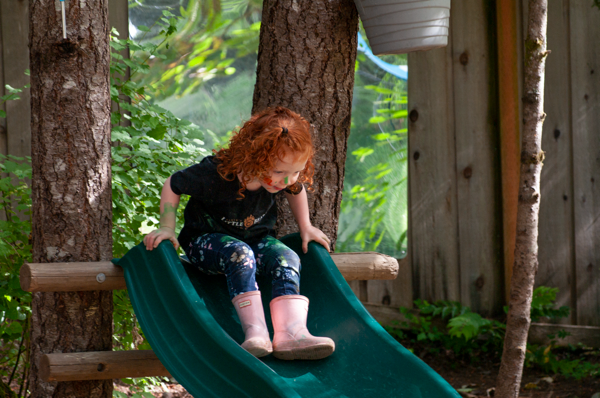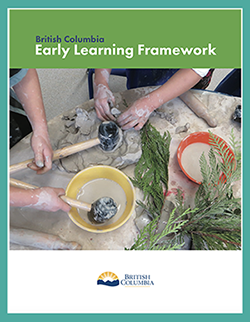
Module 3: Living Inquiries – Well-Being and Belonging
Nourishment, Sleep, and Physical Activity
Children have control of their bodies and contribute to determining routines and schedules.
Critically Reflective Questions
- In what ways are infants involved in their routines, such as diapering, feeding and sleeping?
- Are each child’s preferences for sleep and food recognized and responded to? Could more be done?
- Are children asked to stand, sit, walk, eat, or dress in particular ways during the day?
- Are children able to have control of their bodies all the time? Some of the time?
- Do children have choices about when they can be physically active? About how they can be active?
- How do children contribute to determining the routines and schedules of indoor time? Outdoor time?
Case Study: Nourishment, sleep, and physical activity
One educator tries to create environments where children can play freely and are minimally disrupted by transitions. The educator facilitates any necessary transitions so that each child has an opportunity to listen to their body and regulate their emotions, thoughts, and behaviours throughout the day. The educator supports children’s necessary transitions such as using the washroom, eating, and rest.
Reflective Question
In your practice, are there opportunities for children to listen to their bodies and contribute to determining routines and schedules?

